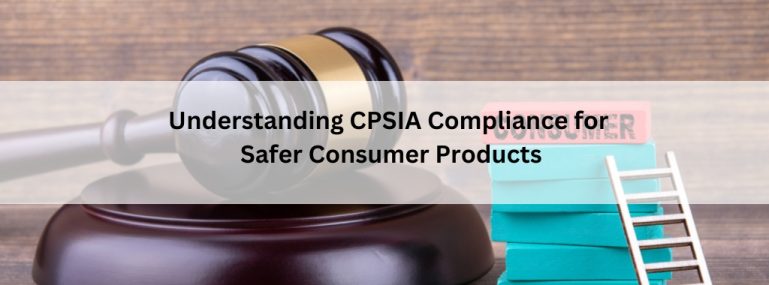The Consumer Product Safety Improvement Act (CPSIA) aims to enhance consumer safety by requiring products to undergo testing against mandatory safety standards before being sold in the market. This crucial law ensures the protection of public health and well-being by virtually eliminating lead and banning phthalates in consumer products.
The CPSIA’s primary goal is to improve the safety of consumer goods, especially those designed for children, by establishing strict limits on hazardous substances like lead and phthalates and mandating comprehensive testing and certification processes.
Under the CPSIA, lead content in surface coatings and paint is restricted to 90 parts per million (ppm), while the total lead content in substrate materials must not exceed 100 ppm. Phthalates—specifically DEHP, DBP, or BBP—are prohibited if they exceed 1000 ppm.
To comply with the CPSIA, manufacturers must ensure that their products meet these stringent safety standards through thorough testing. Domestic manufacturers and importers of general-use or non-children’s products are required to certify their compliance with the relevant safety rules by issuing a General Certificate of Conformity (GCC), based on laboratory test results. Children’s products must be accompanied by a Children’s Product Certificate (CPC). These products must be tested by laboratories recognized by the Consumer Product Safety Commission (CPSC) to confirm compliance with the lead and phthalate limits. The Act enforces severe penalties, including fines and potential imprisonment, for non-compliance. By adhering to these regulations, manufacturers can help create a safer marketplace, and parents can feel more confident in the products their children use.
Compliance XL provides consulting services for CPSIA compliance, assisting companies in collecting and validating supplier declarations. We also help businesses maintain up-to-date supplier certificates and declarations as part of their ongoing compliance data management strategy.
FAQs:
1. What is a Children’s Product Certificate (CPC) & General Certificate of Conformity (GCC)?
A CPC is a document certifying that a children’s product complies with all relevant safety standards. A GCC is required only for non-children’s products and must be based on test results from a CPSC-recognized laboratory, accompanying the product.
2. What are the penalties for non-compliance with CPSIA?
Manufacturers, importers, and retailers who fail to comply with CPSIA regulations may face significant penalties, including fines and product recalls. The CPSC has the authority to enforce these penalties to ensure consumer safety.





